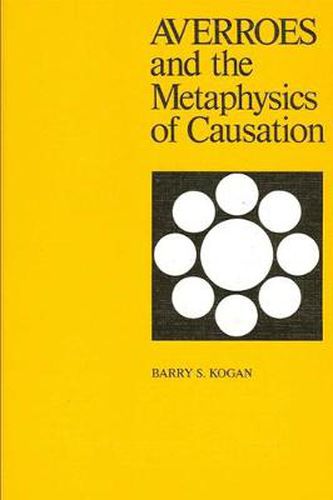Readings Newsletter
Become a Readings Member to make your shopping experience even easier.
Sign in or sign up for free!
You’re not far away from qualifying for FREE standard shipping within Australia
You’ve qualified for FREE standard shipping within Australia
The cart is loading…






Averroes and the Metaphysics of Causation examines the controversial causation issue. That causes produce their effects and can be known to do so is the view that Averroes defends in his Tahafut Al-Tahafut, where he summarizes and evaluates the debates about causation-debates that took place over several generations between the philosophers and the theologians of medieval Islam. Drawing from his Tahafut, his commentaries, and other writings, Kogan shows that Averroes’ discussion of causation represents a dialogue across the generations and a rich contribution to the history of the causal controversy. Averroes responds to al-Ghazali’s proto-Humean critique of the philosophers’ account which treats causation as an entailment relation. In this response Averroes develops an independent position that is of philosophical interest because it clearly anticipates many of the contemporary responses to Hume associated with the singularist position. Building on this analysis, Kogan resolves many long-standing paradoxes in Averroes’ treatment of miracles, eternal creation, God’s causal knowing, and the theory of emanation.
$9.00 standard shipping within Australia
FREE standard shipping within Australia for orders over $100.00
Express & International shipping calculated at checkout
Stock availability can be subject to change without notice. We recommend calling the shop or contacting our online team to check availability of low stock items. Please see our Shopping Online page for more details.
Averroes and the Metaphysics of Causation examines the controversial causation issue. That causes produce their effects and can be known to do so is the view that Averroes defends in his Tahafut Al-Tahafut, where he summarizes and evaluates the debates about causation-debates that took place over several generations between the philosophers and the theologians of medieval Islam. Drawing from his Tahafut, his commentaries, and other writings, Kogan shows that Averroes’ discussion of causation represents a dialogue across the generations and a rich contribution to the history of the causal controversy. Averroes responds to al-Ghazali’s proto-Humean critique of the philosophers’ account which treats causation as an entailment relation. In this response Averroes develops an independent position that is of philosophical interest because it clearly anticipates many of the contemporary responses to Hume associated with the singularist position. Building on this analysis, Kogan resolves many long-standing paradoxes in Averroes’ treatment of miracles, eternal creation, God’s causal knowing, and the theory of emanation.